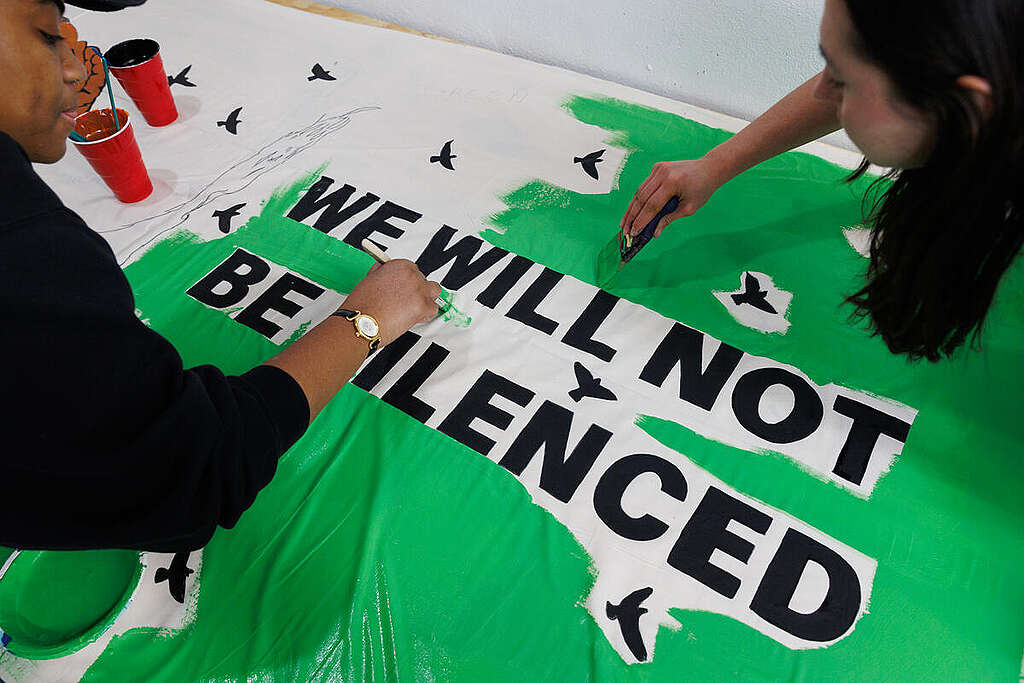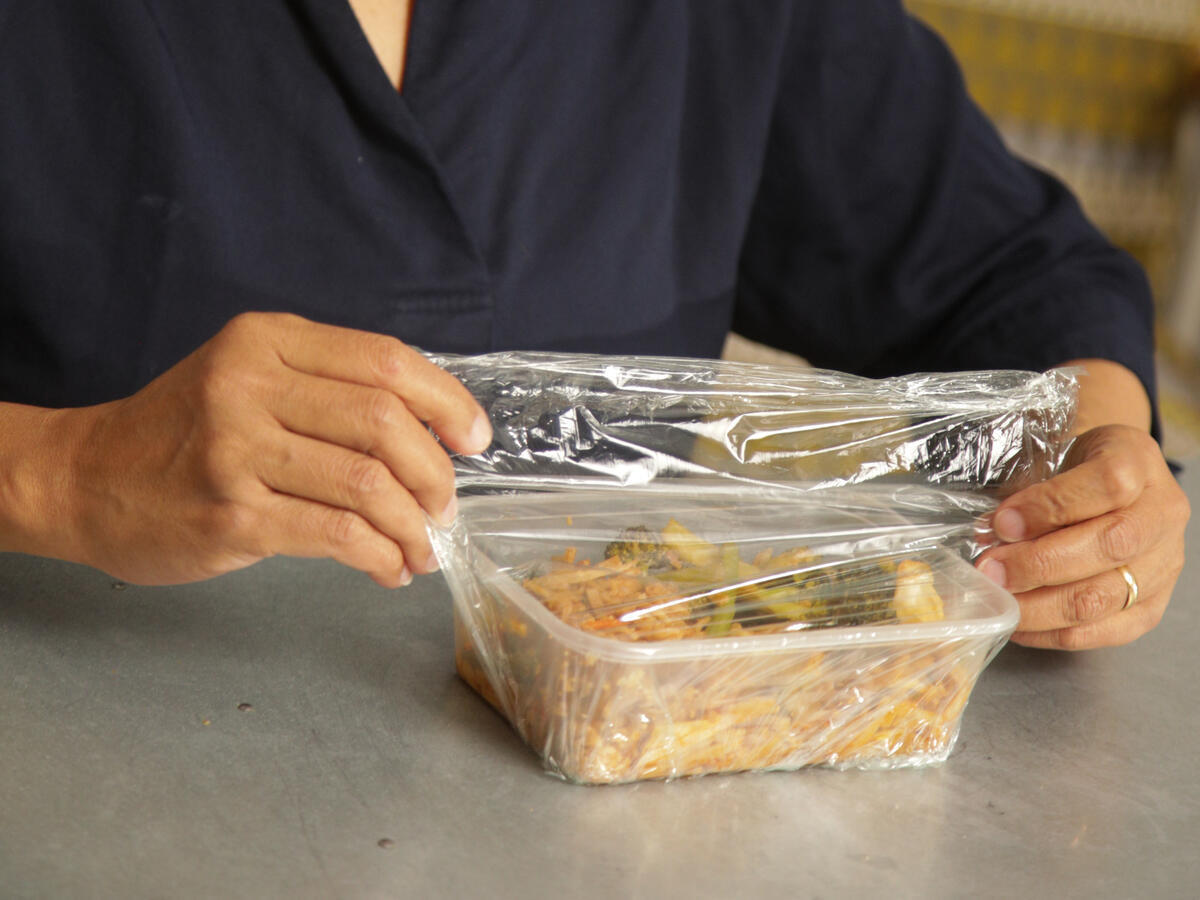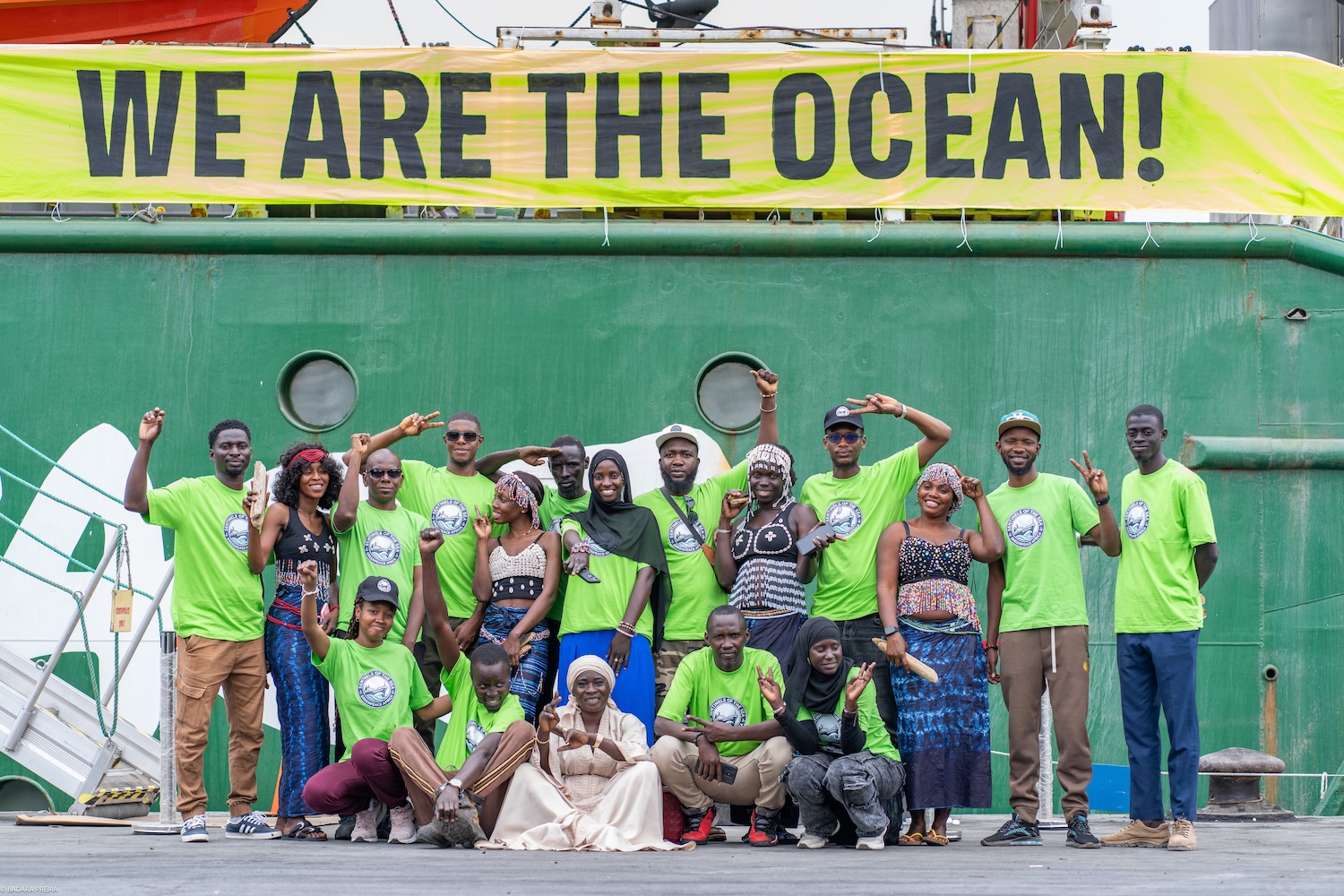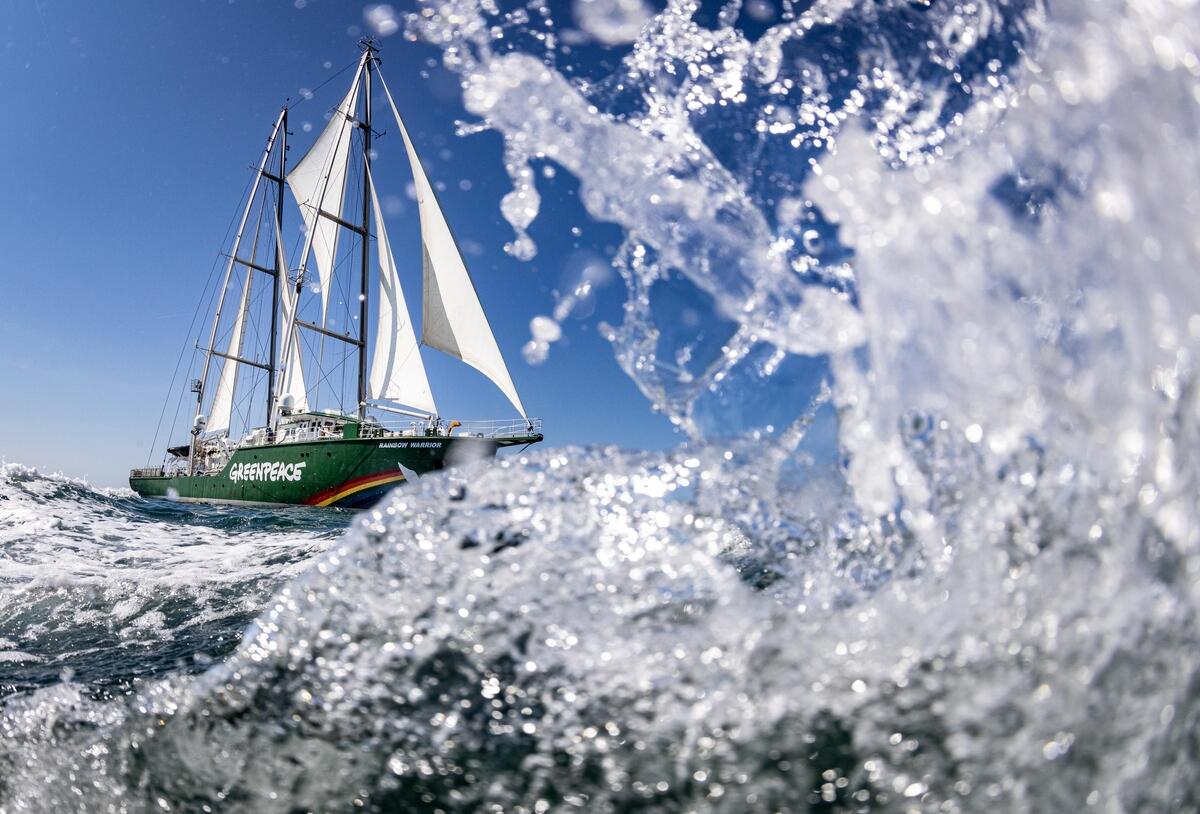
From Standing Rock to the courtroom: a dangerous precedent
In September 2016, the world watched as the Standing Rock Sioux Tribe, environmental defenders, concerned citizens, religious leaders and thousands of Indigenous and climate justice activists mobilised against the construction of the Dakota Access Pipeline (DAPL) in the United States. At the heart of the protests was a simple demand: respect Indigenous rights, protect sacred lands, and prevent the contamination of water sources.
Greenpeace targeted in a US$900 million lawsuit
Energy Transfer, the company behind the pipeline, responded with an unprecedented legal assault. In 2017, it filed a US$900 million lawsuit against Greenpeace International and Greenpeace in the US, BankTrack, Earth First! movement, 20 other unidentified individuals. The company accused them of racketeering, conspiracy, and defamation, arguing that they were part of a criminal enterprise, not a peaceful protest. Though the case was summarily dismissed by the federal court, Energy Transfer refiled in another state court, eventually securing a US$ 660 million verdict against Greenpeace International and Greenpeace in the US in 2025.
Silencing dissent: the corporate game plan
This verdict marks a chilling milestone: corporate weaponization of the law to dismantle civil society opposition. It’s not just a courtroom loss—it’s a coordinated attack on the right to dissent, and a blueprint fossil fuel giants hope to export globally. Nowhere is this threat more urgent than in Africa.
Following the verdict, the African Energy Chamber (AEC) publicly applauded the outcome and brazenly called for similar lawsuits across Africa. Their statement is as revealing as it is alarming. Their celebration of this legal travesty is not about justice. It’s about using deep pockets and powerful legal teams to silence environmental defenders and fast-track resource extraction projects with minimal scrutiny.
This is a SLAPP, not justice
Make no mistake: this is a Strategic Lawsuit Against Public Participation—a SLAPP suit. These suits are not about seeking justice or recovering damages. They are tactical weapons used to intimidate, exhaust, and silence critics through prolonged litigation and financial ruin. The US$660 million verdict isn’t about real harm—it’s about sending a message: oppose us, and we will destroy you.
Exporting suppression: a warning for Africa
This strategy is now being promoted as a model for Africa. The AEC’s endorsement of SLAPPs is a loud declaration that they see civic engagement and environmental advocacy not as partners in responsible development, but as obstacles to be crushed. Their language around “energy poverty” and “economic development” is a smokescreen. What they really advocate is unrestrained extraction with little regard for its environmental, social, or human cost.
The cost of corporate intimidation
We’ve already seen this play out across Africa. If Energy Transfer’s legal tactics become standard across the continent, the consequences will be devastating:
- Community voices will be silenced before they can speak.
- Media will hesitate to report on harmful projects for fear of litigation.
- NGOs will be forced to divert funds from their work to legal defense.
- Corporate impunity will grow, unchecked by public scrutiny or protest.
The ripple effect has already begun. Across Nigeria, Uganda, Mozambique, and Senegal, civil society organisations are sounding the alarm over shrinking civic space, police crackdowns, and increased surveillance around extractive projects. If the fossil fuel industry succeeds in exporting SLAPP suits to Africa, they will turn the courtroom into a tool of suppression, converting public resistance into corporate risk management.
Africa needs just development, not legal gags
Let us be clear: Africa does not need development at any cost. What we need is development that is democratic, inclusive, sustainable, and just. Development that benefits communities and not just shareholders. That respects land rights and environmental protections, not one that bulldozes them in the name of profit.
We need free voices to build a free future. And that requires strong, independent voices: journalists, scientists, lawyers, Indigenous leaders, women-led organisations, and youth movements. It requires the ability to speak truth to power without fear of financial or legal retaliation.
South Africa draws a legal line in the sand
In an era where corporate interests increasingly clash with grassroots activism, Africa is uniquely positioned to redefine the global standard for legal protections of public interest activists. The recent, 2022, South African Constitutional Court ruling in Mineral Sands Resources (Pty) Ltd and Others v Reddell and Others [2022] ZACC 37 marks a turning point as a landmark decision, that delivered a powerful blow to corporate intimidation tactics. The ruling siding with six activists (two of whom were public interest lawyers instructed by Centre for Environmental Rights), targeted by an ASX-listed Australian mining company, and its South African subsidiary, Minerals Commodities Limited (MRC)[1]. The activists had raised valid environmental and procedural concerns about a mining project threatening local communities. In retaliation, they faced three defamation lawsuits, designed to intimidate and silence rather than seek justice, which fits the textbook definition of a SLAPP suit.
Justice Majiedt articulated a foundational principle: that the courts must not be used as instruments to suppress dissent. Regarding SLAPP suits, he noted:
‘Lawsuits of this kind are usually brought for the purpose of preventing or discouraging political expression and comment on public issues. Their objective is to limit protest and dissuade individuals, citizens and activists from political participation. … A common feature of SLAPP suits is that the primary aim of the litigation is not to enforce a legitimate right. The objective is to silence or fluster the opponent, tie them up with paperwork or bankrupt them with legal costs.’[2]
This decision further strengthens protections surrounding freedom of speech against attempts to silence corporate dissent. Most importantly, it sets binding precedent for all South African courts and, more broadly, signals an awakening in African jurisprudence. In a region disproportionately affected by environmental degradation, land grabs, and exploitative development projects, this framework could insulate African civil society from corporate coercion and ensure that activism remains a viable, respected form of democratic engagement. In doing so, Africa won’t just be reacting to climate injustice—it will be shaping the global response to it.
The call to action is simple: Resist, Reform, and Rally
- African governments must enact anti-SLAPP legislation, modelled on best practices globally, to protect public participation and freedom of expression.
- Judiciaries must be sensitised to the misuse of the legal system and reject SLAPP suits for what they are: corporate intimidation dressed in legal language.
- Media outlets must continue to report fearlessly, and amplify the voices of environmental defenders under threat.
- International solidarity is essential. Legal intimidation knows no borders, and the global climate justice movement must rally to protect defenders wherever they are under attack.
The verdict is a global test of resolve
The verdict against Greenpeace International and Greenpeace in the US is not an isolated event. It is part of a global strategy to dismantle the growing power of climate justice movements. It is a warning, and a test: will we allow corporations to sue their critics into silence, or will we draw a line and defend the foundational rights that make democracy—and sustainable development—possible?
As fossil fuel interests rally behind SLAPP suits, we must rally behind defenders of land, water, and climate. They are not the enemies of development. They are its guardians.
The future of Africa depends on it.
[1] South African Constitutional Court provides new protection for activists against SLAPP Suits’, Centre for Environmental Rights, https://cer.org.za/news/south-african-constitutional-court-provides-new-protection-for-activists-against-slapp-suits 15 November 2022
[2] Mineral Sands Resources (Pty) Ltd and Others v Reddell and Others [2022] ZACC 37, Justice Majiedt at para 42 and 43’



